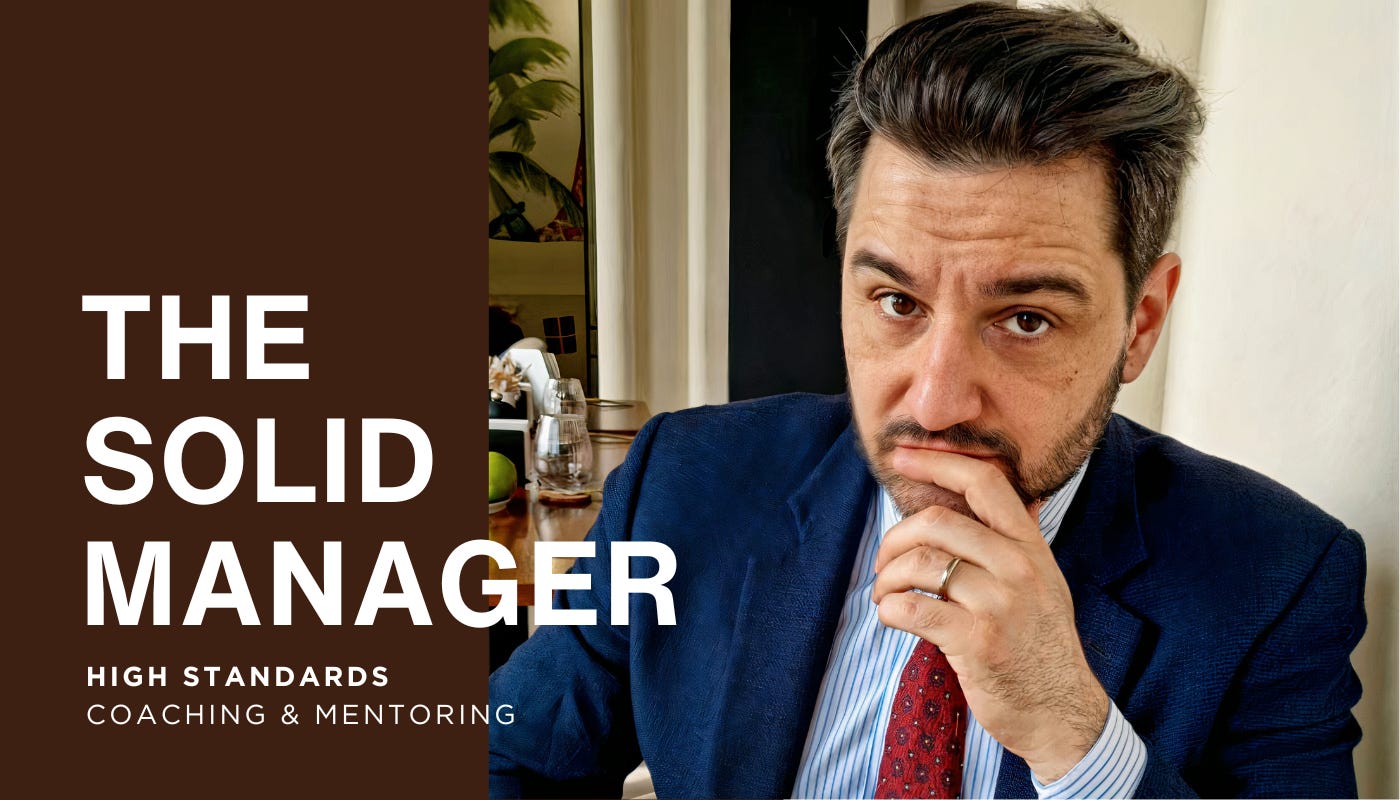Having authority as a manager: the three key attitudes to adopt
Having authority as a manager is not about charisma or likeability. Here are the three key attitudes to develop.
Quiet authority: the three key postures to adopt
Regardless of the professional environment, a manager's authority is never a given and is never a luxury.
If, as a manager, you are tempted to say, "Oh, I don't care about authority, I'll leave that to the petty bosses," let me tell you that you have already lost it.
The informal authority you exude is a lever for stability, alignment, and performance for your teams. And I know that many managers still confuse authority with authoritarianism, charisma with legitimacy, and posture with personality.
Structuring your authority is not an asset, it is a real condition for managerial survival. Be careful, it's not about overdoing it or playing a role, it's about doing what the job requires: setting a clear framework, embodying consistency...
Quiet authority is not passive. It is based on active, solid, observable attitudes.
And it is this foundation that we will detail here.
1. The framing stance: setting clear, non-negotiable boundaries
The first requirement for managerial authority is your ability to formulate, maintain, and embody a framework. It takes the form of:
explicit objectives : in particular, periodic objectives (quarterly, half-yearly), taking care to structure them around specific and measurable deliverables. Based on these objectives, formalize individual expectations at the start of the project or assignment. Once the framework has been established, communicate the objectives verbally AND in writing (by email, for example),
operating rules: ideally, you can develop these together if your team is mature enough; otherwise, formalize 5 to 7 internal operating rules (e.g., response times, reporting mechanisms, adherence to schedules, etc.). If you already have general internal rules, this task will be even easier,
team rituals: in other words, these are fixed, non-negotiable meetings such as weekly opening/closing meetings (30 minutes max, focusing on progress and sticking points), individual reviews (every two weeks is a good frequency), and one collective review (monthly). Please note that these rituals must continue even during periods of tension.
expected behaviors : here, clearly state the behaviors you value and those you reject. These rules must be publicly reaffirmed and reminded to individuals if necessary.
“I want disagreements to be expressed, not silence in meetings and tension behind closed doors.”
“No microaggressions. No whispering. No unspoken words.”
Without this foundation, you will find yourself in a permanent defensive position in which you will react, explain, and justify instead of making clear decisions.
Don't view framing as a formality, but as a structuring act. Too many managers expect "natural" behavior from their employees, but without an explicit framework, no lasting alignment is possible. Be careful, this approach requires absolute consistency. The framework and its structure cannot be adjusted according to moods, pressures, or individual personalities, but must be based on objective criteria that are accepted and applicable to everyone. Without this rigor, you will lose credibility, and the team may even start to test your limits.
2. The posture of presence: embodying stability without agitation
Following on from the first point, your authority is not asserted through agitation, vocal effects, or signals of control, but through a stable, constant, and clear presence. What your employees expect is a figure of support, capable of withstanding pressure, maintaining a clear vision, and providing clarity in times of uncertainty.
You cannot improvise this approach because it relies on rigorous management of your reactions. If you want to embrace the philosophy of the Solid Manager, do not overinterpret, do not let yourself be carried away by dominant emotions, and do not infect the team with your own stress. Observe, assess, and decide.
Here are some operational rules to follow:
refuse to make exceptions: there will always be someone who tests the flexibility of the system, someone who negotiates special treatment, someone who avoids meetings or feedback. You are the guardians of the framework in the eyes of everyone. Repeat the framework, rephrase it calmly, never give in to "just this once" because exceptions create loopholes that everyone will see.
don't give in under pressure: sometimes a tense situation (workload, crisis, change, etc.) can lead us to temporarily lower our standards. I understand the motivation—you think you are showing humanity—but in reality, you are creating confusion. I'll be blunt: it is precisely in times of pressure that the manager's role is to maintain the benchmarks. You may not see it yet, but the framework is protective and reassuring for the teams.
filter out emotion and stay the course: easy to say, harder to do, but keep your stress to yourself. In other words, don't change the rules because you're tired, annoyed, rushed, or stressed. Once again, as in times of pressure, the team needs to feel that your framework is based on objective, consistent, non-emotional criteria.
Keep in mind that your authority is nourished by your consistency.
3. The decision-making stance: decide without being harsh, take responsibility without running away
Ultimately, a manager's legitimacy rests on their ability to make clear and confident decisions. A managerial decision is not a personal preference or an emotional response; it is an act of responsibility. Not only because it commits the team, guides efforts, and resolves ambiguities, but also because it makes you publicly accountable for the outcome, whatever it may be. It cannot therefore be delayed indefinitely under the pretext of listening or reaching consensus:
align your actions with your expectations: no one follows a manager who preaches but doesn't practice. Do you demand punctuality? Be on time. Do you ask for clarity? Be crystal clear in your emails. Once again, your credibility will come from your consistent behavior. And, I know, it's unfair, but the slightest deviation will undermine everything you've built.
stay consistent over time: I mentioned earlier the need to stay the course during difficult times, but the opposite is also true—don't slack off after a good period. Stay on track.
address deviations immediately: when a rule is broken, act immediately, without animosity or aggression. Above all, do not speak in half-words.
Example not to follow: "Um... yeah, well, I don't know, you handle it."
Example to follow: "That's not what we agreed on. I'm reminding you now so that we stay on the same page. We agreed on X, Y, and Z, and I want us to stick to that."
It's quite paradoxical, but quiet authority is built on discomfort. It involves accepting the need to say no, to stop a project, to correct behavior, without excess or brutality, and doing so at the first sign of trouble.
Sorry to disappoint you, but making decisions also means accepting the loneliness of the job. You are not an elected official (literally or figuratively), few people have chosen you, and you don't have a flood of supporters. You will only become legitimate through your ability to shoulder the responsibilities of the position.
Structuring authority is a discipline, not a talent.
What we call "natural authority" is often an invisible construct, forged by stable postures, confident decisions, and uncompromising behavioral rigor. A strong manager does not seek to please; they seek to be respected. Your authority is neither a gift nor an aura; it is the result of a disciplined approach that is built and worked on every day. It is managers who accept this sometimes uncomfortable structuring work who manage to stabilize their team, unleash collective power, and fulfill their role without burning out.
To your Solidity,
Olivier KAMEL
If you feel that your authority is unclear, unstable, or constantly being challenged, it is not a lack of charisma. It is a lack of structure in your posture.



